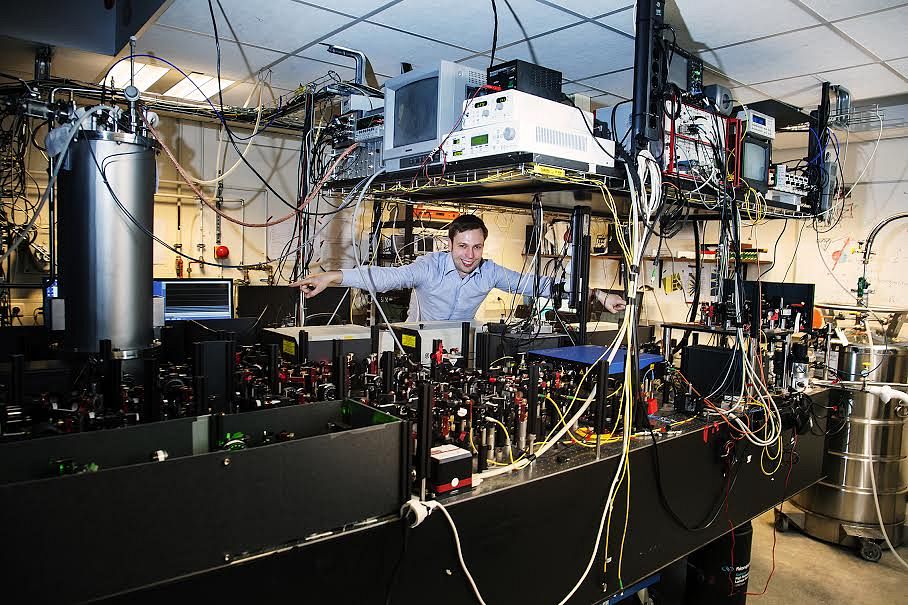The Rubicon program, part of the NWO (Netherland’s Organisation for Scientific Research) awarded 18 post-docs with a Rubicon fellowship this year.
The fellowship offers students from all scientific fields the chance to spend one to two years at a university abroad pursuing their research. One of them is German national and recent TU Delft Phd graduate Dr. Hannes Bernien, who started his fellowship in May at Harvard University in the United States, to research quantum networks.
Explain a little about your research into quantum network nodes.
“Quantum physics often describes the smallest things; think about single atoms, single particles of light, and when you go to such scales things start to behave quite differently from what you would expect. I am looking at single atoms, and how you can couple them to light, and transmit quantum information form the atom to the light, and collect it with another atom. This single atom and this light particle – you can see them as the network node. So you can have one atom, or a few atoms that you control very well and you use this light to couple this number of atoms to another group of atoms that might be far away.”
What applications could this research have?
“If you were able to set up a quantum network over a large distance, then you could use this network to transit information from one node to another, without the possibility of anyone intercepting. This is of course a huge drive, especially now days when everyone is interested in sending information safely. Another interesting application could be quantum computers, offering an entirely new way of computing things, and a much more powerful way. These are very nice applications, but for me still, I am astonished every day in the lab by how these small things behave.”
Is it difficult to find these funding opportunities in this field, and at your level of academia?
“In physics the funding situation is quite good, you can also find groups who are willing to pay for you without having a fellowship but of course having a fellowship is a great bonus.”
Why did you choose Harvard?
“Mainly, the research group. Harvard is, of course, a good name and environment and I hope it will be very stimulating – you get in contact with lots of people from different fields. But this particular case I am interested in this particular research group. I was also looking into other research groups, but I thought this would suit me the best.”
What do you expect are the benefits of a fellowship abroad, as opposed to one here, and where do you think you will go after?
“Getting more experience abroad I think is very important, also getting experience in America, which is quite a big magnet. It still draws quite a lot of people and there is good reason for that. I would really like to experience the research culture – so having this opportunity is great. I think the next logical step after this fellowship is to maybe start setting up my own research group, and TU Delft of course would be very attractive, because it is a very good place for this.”



Comments are closed.